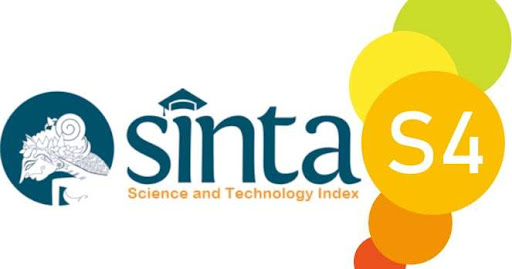The Translation Forms of First-Person Pronouns in Murder on the Orient Express
DOI:
https://doi.org/10.36733/sphota.v17i1.9425Keywords:
translation, pronouns, subject, objectAbstract
This research aims to describe the translation forms of first-person pronouns used as the subject and object from English into Indonesian. This research is descriptive-comparative with a qualitative approach, which explores the nature of first-person pronouns in two novels. The problem of this research is how the equivalent forms are found in translating first-person pronouns from English into Indonesian in the novel “Murder on the Orients Express”. The results show that there are 155 first-person pronouns in the English novel, indicating that the translation of these pronouns, “I” can be aku, ku- kami, and saya, “me” can be kita and sayalah, “we” can be kereta, kami, and kita, and “us” can be kita and kemari. The differences in translation results are due to the different pronoun systems. English does not have an inclusive and exclusive system for “we”, while Indonesian does not have the first-person pronouns in terms of subjects and objects.
References
Addinna, A., Ovilia, R., & Asfina, R. (2019). The effect of visualization strategy in reading observed from students’ cognitive learning styles. Lingua Didaktika: Jurnal Bahasa Dan Pembelajaran Bahasa, 13(1), 26–34. Retrieved from https://doi.org/10.24036/ld.v1
Ardi, H., Muhd. Al Hafizh, & Arianto, M. A. (Eds.). (2020). Kurnia dalam Bahasa: Pengkajian Bahasa, Sastra, Budaya & Pengajarannya. Yogyakarta: Erhaka Utama.
Azoua, M. H. (2020). Language clubs and pedagogical approach to teach English: University of Parakou English club case. Lingua Didaktika: Jurnal Bahasa Dan Pembelajaran Bahasa, 14(1), 44–54. Retrieved from https://doi.org/10.24036/ld.v14i1.107995
Becerra, T., Herazo, J., Garcia, P., Sagre, A., & Diaz, L. (2020). Using reading to learn for EFL students’ reading of explanations. ELT Journal, 74(3), 237–246. Retrieved from https://doi.org/10.1093/elt/ccz053
Handayani, T., Rozimela, Y., & Fatimah, S. (2020). An analysis of English-speaking anxiety experienced by the second year students of English Language and Literarture Department of Universitas Negeri Padang and its causal factors. Journal of English Language Teaching, 9(3), 580–592.
Hapsari, B. S., & Ena, O. T. (2019). English Pre-service Teachers’ Identity during Teaching Practice: Narrative Research. International Journal of Indonesian Education and Teaching, 3(2), 204–214.
Kusumaningputri, R., & Widodo, H. P. (2018). Promoting Indonesian university students’ critical intercultural awareness in tertiary EAL classrooms: The use of digital photograph-mediated intercultural tasks. System, 72, 49–61. Retrieved 1 February 2018 from https://doi.org/10.1016/J.SYSTEM.2017.10.003
Mahmudah, R., & Ardi, H. (2020). The use of instagram platform toward junior high school students’ speaking ability. In Advances in Social Science, Education and Humanities Research (Vol. 411, pp. 364–369). Paris: Atlantis Press. Retrieved from https://doi.org/10.2991/assehr.k.200306.061
Putri, N. E., & Sari, S. Y. (2020). Applying vlog assignment to develop students’ speaking ability. In Advances in Social Science, Education and Humanities Research (Vol. 411, pp. 280–283). Retrieved from https://doi.org/10.2991/assehr.k.200306.046
Ristimäki, H. L., Tiitinen, S., Juvonen-Posti, P., & Ruusuvuori, J. (2020). Collaborative decision-making in return-to-work negotiations. Journal of Pragmatics, 170, 189–205. Retrieved from https://doi.org/10.1016/j.pragma.2020.08.012
Sugiyono. (2017). Metode Penelitian Pendidikan Pendekatan Kuantitatif, Kualitatif,dan R & D. Bandung: Alfabeta.
Triastuti, A. (2020). Assessing English pre-service teachers’ knowledge base of teaching: Linking knowledge and self-portrayal. TEFLIN Journal, 31(1), 108–138.













